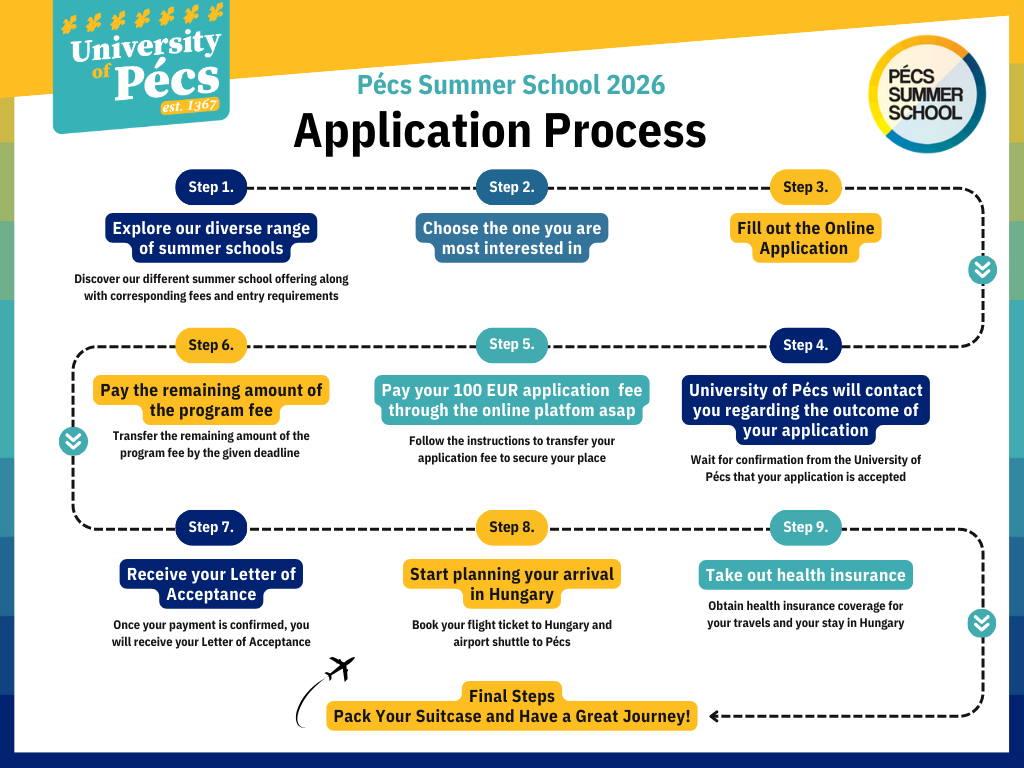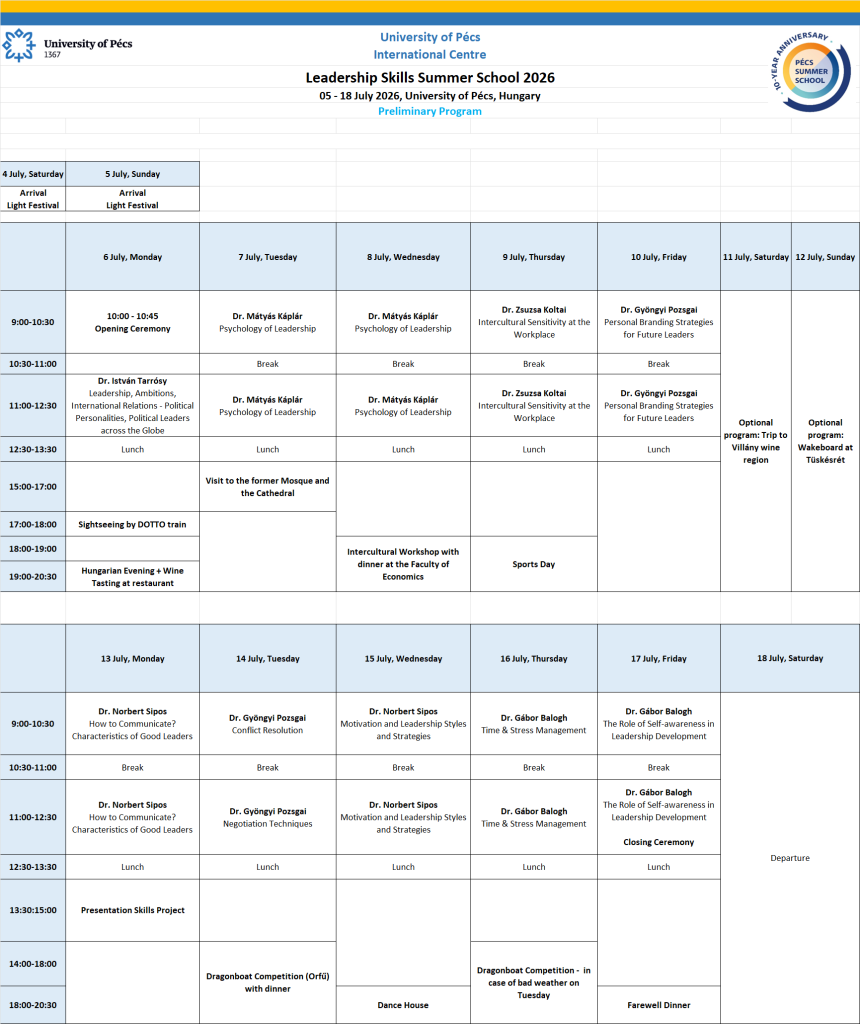Social Sciences
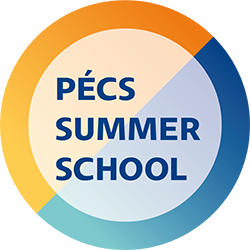
- Study Program
- Schedule
- Social Program
- Accommodation
- Fees and Payment
- How to Apply
- Contact Us
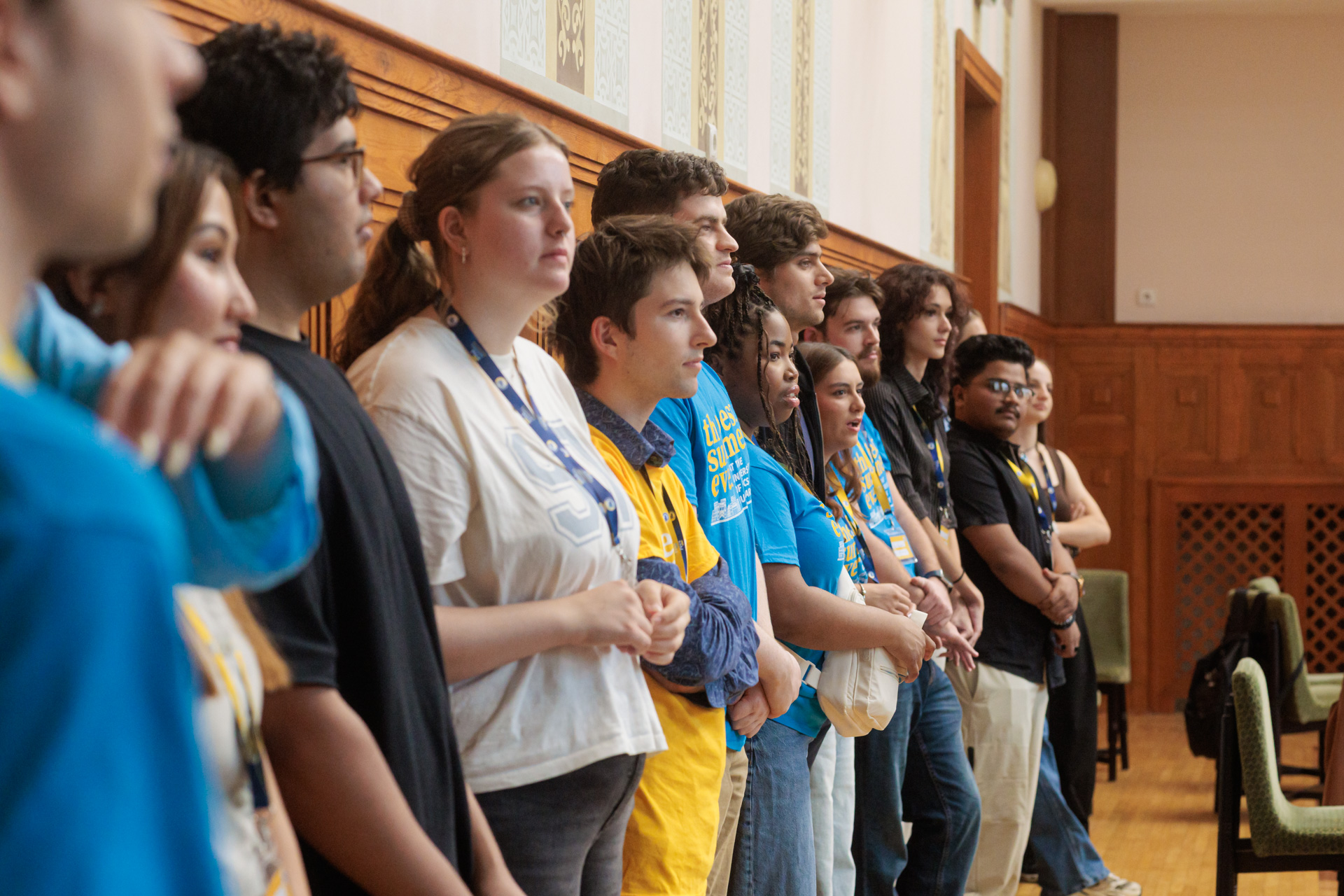
Organizing unit
University of Pécs
Course Location
University of Pécs, Hungary
Study Program
Description of the academic program:
This intensive two-week summer course empowers participants with essential leadership skills to guide and inspire teams effectively. Participants will explore key concepts of leadership, including vision setting, strategic thinking, communication, team dynamics, and decision-making.
Credits offered: 6 ECTS
Course requirements:
STUDENT ASSIGNMENTS
Assignment No 1:
Prior to the summer school, students need to individually prepare themselves by familiarising with various methods of effective presentation techniques and public speaking.
Assignment No 2:
During the course, students practice the effective presentation techniques and then present their progress through a specific project task.
Students receive the credits provided by the summer school only upon successful completion of the assignments listed above.
Students receive credits if they do not miss more than 10% of classes and on-site learning programs.
Language of instruction: English
Language requirements: Minimum English language requirements: Independent user (B2 according to the Common European Framework of Reference for Languages)
Leader of the academic program: Pozsgai Gyöngyi, PhD, Head of the Study Abroad and Summer School Office
The classes will be taught by highly experienced academics. Students will receive official Transcripts of Records upon completion of the program. The program includes various interesting and enjoyable social programs and excursions.
Looking for more? Combine your chosen Summer School with the Debate Academy and double the knowledge, skills, and fun!
Click here for more information
Course description
Psychology of Leadership
Lecturer: Dr. Mátyás Káplár PhD
DESCRIPTION AND AIMS:
The primary aim of this course is for participants to internalize the notion that leadership is more than a position of authority – it's also about inspiring and guiding others toward shared goals, fostering collaborative environments, and making a lasting impact on organizations. This module is designed for those who aspire to become transformative leaders, capable of harnessing their psychology to lead with wisdom and compassion.
INTENDED LEARNING OUTCOMES:
Throughout this module, students will scrutinize the critical personality traits that define successful leaders, including empathy, resilience, adaptability, and ethical decision-making. We emphasize the pivotal role of self-knowledge in leadership, helping students uncover their own strengths and areas for growth. The module encourages participants to reflect on their own leadership styles and develop a heightened awareness of their personal qualities.
How to Communicate? Characteristics of Good Leaders
Lecturer: Dr. Norbert SIPOS PhD
DESCRIPTION AND AIMS:
The aim of this module is to understand the basics of the communication of good leadership. The mixed structure of generic peculiarities regarding communication and cultural diversity should support the leadership to ensure efficiency and effectiveness. There will be simulations and other team-based activities through which the participants can hear not only up-to-date knowledge elements but also experience in person the stereotypes, fundamental beliefs, and the power and role of the oral vs. non-oral communication structures. The group-based work and common discussion of the experiences lead to a higher-level integration of the learning outcomes.
INTENDED LEARNING OUTCOMES:
Upon the successful completion of this class, students should be able to:
understand the theoretical and conceptual background knowledge of managing a business in local and global cultural contexts,
recognise the communication barriers and identify potential solutions,
support the employees to have more efficient communication considering the global managerial context,
interpret and analyse complex management issues from multiple perspectives.
Motivation and Leadership Styles and Strategies
Lecturer: Dr. Norbert SIPOS PhD
DESCRIPTION AND AIMS:
The aim of this module is to understand motivation in reality and how diverse and broad it could be from the perspective of employees and managers/leaders. The leadership style is only been researched in the past century within a framework of professional expectations. Furthermore, as leadership is rather a soft concept, it should be emphasised that there is no universal solution for every potential challenge raised by the given organisational situation. Leaders should fit their behaviour and strategies to address the proper motivation which leads to reaching the general goals. Beyond the video-supported approach, a manager-employee simulation is also provided to enhance the learning experience.
INTENDED LEARNING OUTCOMES:
Upon the successful completion of this class, students should be able to:
understand the theoretical and conceptual background knowledge of leadership challenges in an ever-changing world,
compare and contrast major leadership evolution-related schools and approaches,
interpret and analyse the leadership role, duty, and responsibility,
exercise initiative and take personal responsibility for a leader’s work.
Personal Branding for Future Leaders
Lecturer: Dr. Gyöngyi Pozsgai, PhD
DESCRIPTION AND AIMS:
The module will prepare students to define and communicate their personal brand by understanding their values, setting goals, and taking risks that can lead to landing their dream job. A strong personal brand can also help get promotions, increase confidence and become successful leaders. Students will learn how to develop skills for defining their personal brand and better understanding how their brand aligns with their future careers. The basics of effective public speaking will also discussed. Students will also gain knowledge on how to apply personal branding strategies in digital and in-person contexts, including networking opportunities and social media platforms.
INTENDED LEARNING OUTCOMES:
Upon the completion of this class, students should be able to:
define what a brand is and explore the overlap between the branded products and personal branding
learn to reflect on their core values
get ideas about how to create and refine their brand to help them achieve their personal and professional goals
Conflict Resolution
Lecturer: Dr. Gyöngyi Pozsgai, PhD
DESCRIPTION AND AIMS:
This module will explore the reasons for workplace conflict and compare the types of dispute resolution procedures that are used in the workplace. It will help students gain a new understanding of the various types of conflicts in workplace settings as well as sources of disputes and guidelines on how to transform conflict into collaboration. Students will learn to develop skills and insights that can empower them when dealing with conflicts. The discussion topics will include emotional intelligence, collaborative communication, the cost of ignoring conflicts, how to handle difficult employee behaviour and how to lead and manage change. Students will develop a long-term strategy to confidently and effectively address different types of conflict.
INTENDED LEARNING OUTCOMES
Learn key concepts and theories related to conflict management
Acquire knowledge of effective conflict resolution techniques
Learn to take a proactive approach to resolve issues to lead to a better working environment
Learn why it is important to have a good team rapport
Negotiation Techniques
Lecturer: Dr. Gyöngyi Pozsgai, PhD
DESCRIPTION AND AIMS:
This module introduces students to the theory and practice of international business negotiation. The topics cover essentials of negotiation, advanced negotiation skills, and specific negotiation scenarios. Students will be introduced to techniques that will enable them to negotiate and communicate effectively not only with their potential business partners, but also to communicate and advocate more effectively in all areas of life.
Internal and external factors that influence negotiation will be discussed, and types of meetings will be introduced. Through participation in negotiation exercises, students will have the opportunity to practice powers of communication and persuasion and to experiment with a variety of negotiating tactics and strategies. They will learn to better analyze negotiations in general and prepare more effectively for future negotiations in which they may be involved. They will also have the opportunity to acquire basic knowledge about settling disputes creatively. They will learn about how negotiation can impact and improve business relationships. By understanding the dynamics of each unique negotiating situation, they will be able to enter future negotiations in a stronger position and emerge with more positive outcomes.
INTENDED LEARNING OUTCOMES:
Define what is meant by negotiation and apply that to a number of different contexts
Identify factors that can determine the outcome of a negotiation
Plan a strategy for successful negotiation
Understand the principle of ‘win-win’ negotiations
Leadership, Ambitions, International Relations - Political Personalities, Political Leaders across the Globe
Lecturer: István Tarrósy, Full Professor
DESCRIPTION AND AIMS:
The lecture provides an in-depth analysis of the intricate realm of politics and international diplomacy, concentrating on the influence of political leadership styles on worldwide matters. An in-depth analysis of the various dimensions of leadership within the field of international relations will be conducted, including an examination of the ambitions, strategies, decision-making procedures, and political personalities and individual qualities that characterize effective leadership on a worldwide scale. Through the examination of case studies, historical instances, and current events, students will acquire a more profound comprehension of the functions that leaders execute when it comes to establishing diplomatic ties, directing conflicts, and molding international policies.
The aim of the module is to
develop a comprehensive understanding of the complex realm of politics and international diplomacy, with a special focus on the influence of political leadership styles on global affairs.
conduct a detailed analysis of case studies, historical instances, and current events to provide students with practical insights into the functions that leaders execute in establishing diplomatic ties, directing conflicts, and shaping international policies.
develop analytical skills by examining the complexities of leadership in diverse geopolitical contexts, enabling students to assess the nuances of decision-making and policy formulation.
explore the role of leaders in directing conflicts, studying different approaches to conflict resolution and the impact of leadership styles on international peacekeeping efforts.
create an environment conducive to critical discussion and debate, allowing students to articulate and defend their perspectives on the role of leadership in shaping the global political landscape.
INTENDED LEARNING OUTCOMES:
Upon the successful completion of this class, students should be able to: identify and analyse leadership dimensions
understand the issues behind the concept charisma
communicate their perspectives on the role of leadership in shaping the global political landscape, demonstrating the ability to articulate and defend their viewpoints.
Intercultural Sensitivity at the Workplace
Lecturer: Dr. Zsuzsa Koltai
DESCRIPTION AND AIMS:
The aim of the module is to help students understand cultural differences, it promotes intercultural sensitivity and develops intercultural communication skills. The interactive session explores the topics of intercultural sensitivity from different perspectives. In addition to discussing issues related to cultural diversity, identity, stereotypes, prejudices, and opportunities for better understanding people from other cultures, the module develops students' skills through pair and group work to be able to successfully cooperate and work with people from different cultural backgrounds.
INTENDED LEARNING OUTCOMES:
Upon the successful completion of this class, students should be able to:
understand the values and opportunities in cultural diversity
understand the influence of cultures on human behavior
become cross-culturally aware
apply theories related to interculturalism in cross-cultural work situations
become capable of successful intercultural communication with colleagues from different cultural backgrounds
Time and Stress Management
Lecturer: Dr. Gábor Balogh, PhD
DESCRIPTION AND AIMS:
The aim of the module is to reveal the connections between time management and stress management and declare the importance of self-awareness in connection with the two topics. We focus especially on the managerial time management models and related stressors, stress reactions and solutions. We elaborate the details with a self-reflective approach.
INTENDED LEARNING OUTCOMES:
Upon the successful completion of this class, students should be able to:
do self-reflections, • improve self-awareness,
explore own stressors, stress reactions
find your own time management & stress resolution techniques
understand the correlations between the two topics
see the importance of time and stress-related models in managerial works
use models and techniques in practice
Self-awareness in Leadership Development
Lecturer: Dr. Gábor Balogh, PhD
DESCRIPTION AND AIMS:
This course will cover the pros and cons of improving self-knowledge in leadership work, while exploring different levels of self-awareness and techniques for developing self-awareness. The most crucial part of this developmental process is self-reflection. During this course you will engage in activities to put self-reflection techniques into the practice. The participant will learn the models of Johary-window, the four types of self-knowledge, self-reflective inquiry, the levels and forms of acquiring self-awareness, personality types, DISC, analysis of strengths.
INTENDED LEARNING OUTCOMES:
Upon the successful completion of this class, students should be able to:
use self-reflections in leadership,
improve managerial self-awareness,
find the blind spots and get feedbacks from classmates
explore the impact of managerial behaviour on colleagues
find own leadership skills and strengths
identify own skills to be developed
Lecturers
The dormitory is located in the city centre and you will be placed in two-bedded rooms. There are two rooms per housing unit equipped with private bathroom and kitchen. Address: Pécs, Breuer Marcell sétány 2, 7622
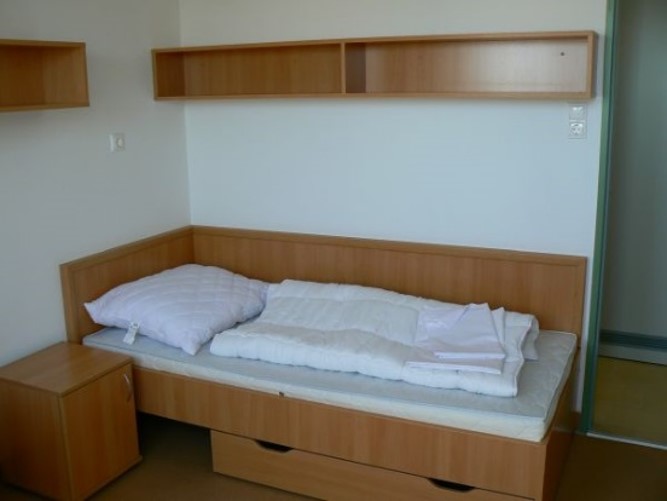
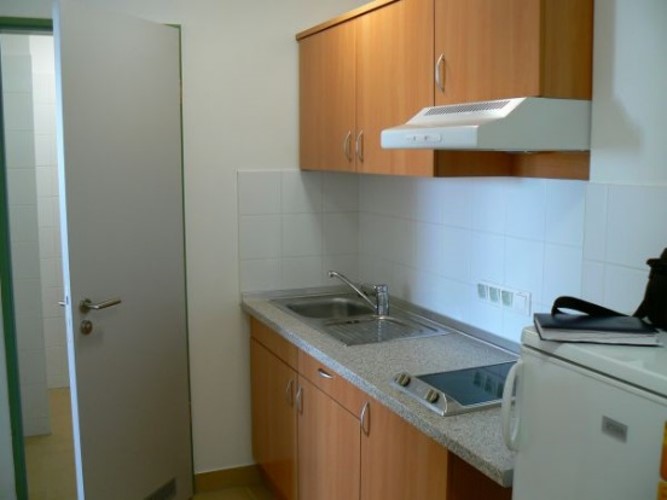
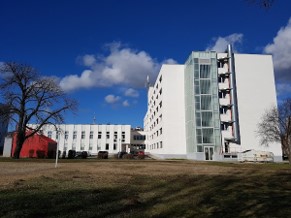
Program fee: 1050 EUR
Application fee: Secure your place by paying 100 EUR application fee that will be deducted from your overall program fee of 1050 EUR. You can make your payment through our online application platform (apply.pte.hu)
After you have paid the entire sum of the program fee, you will receive your Letter of Acceptance. The Letter of Acceptance will be needed for your visa application, if a visa is required to enter Hungary from your country. (Please visit the website of an Embassy or Consulate of Hungary in your country to get informed whether you will need a visa or not)
The program fee covers: cost of instruction, accommodation, lunch on teaching days, four dinners, city tour and social programs.
After the official confirmation of your application, we will send you the details of the online payment.
You will need the following documents for a valid application:
Verification of Enrollment*
Proof of English language proficiency
Copy of ID card or passport
*The verification of enrollment document is an official document provided by your home university, stating that you are a currently enrolled student. Typically, you can ask your international coordinator how to obtain it.
Please ensure that you upload your documents in English.
English language requirements:
| Accepted language test | Minimum result |
| TOEFL (iBT internet - based) | 72 points |
| IELTS (Overall Band Score) | 5.5 |
| Duolingo English Test | 105 points |
| Cambridge ESOL | B2 level |
| TELC | B2 level |
| ECL | B2 level |
| Oxford Online Placement Test | 70 points |
You do not have to submit an official English test result if one of the following criteria applies to you:
You have a major/minor in English, i.e. the English language is the field of study (studies in English linguistics or literature)
You have continued your high school or undergraduate studies in the English language
You are a native English-speaking applicant (a copy of your passport for proof)
You will get an official confirmation that we have received your application within one week after submitting it.
